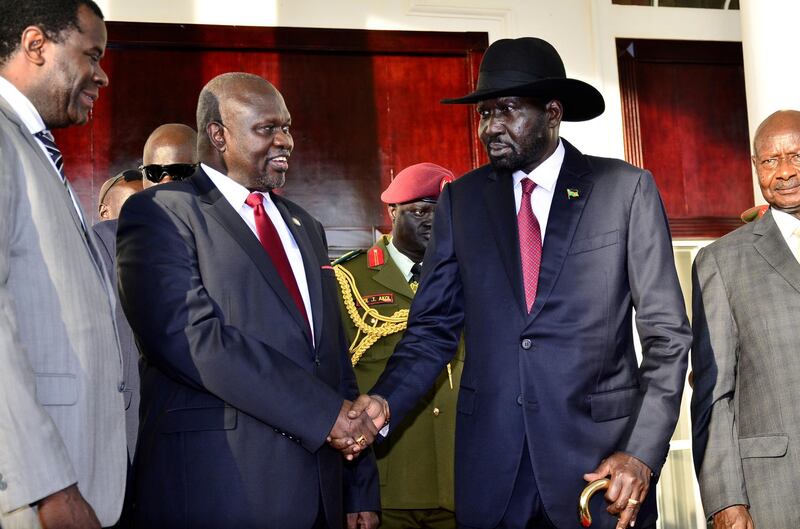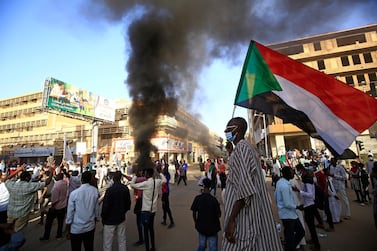The leaders of Sudan and Ethiopia will separately travel to the South Sudanese capital Juba next week to start a mediation attempt by the South Sudanese government to defuse a border dispute.
Senior presidential aide Tut Gatluak, who has been travelling between Khartoum and Addis Ababa in recent weeks for talks with their leaders on the dispute, announced the visits on Wednesday.
While in Juba, Sudan’s de facto head of state Gen Abdel Fattah Al Burhan and Ethiopian Prime Minister Abiy Ahmed will meet South Sudanese President Salva Kiir.
Depending on the outcome of these talks, a three-way summit could be held later in Juba, Mr Gatluak said.
Also on Wednesday, a spokesman for the Sudanese Foreign Ministry said the country’s ambassador to Addis Ababa had been summoned for consultations, Reuters reported.
It was not immediately clear if it was linked to the border dispute.
A Saudi government envoy, Minister of State for African Affairs Ahmed Qatan, was in Khartoum on Wednesday to try to defuse tension between Sudan and Ethiopia.
He held talks with Sudanese leaders including Gen Al Burhan and Prime Minister Abdalla Hamdok. He was scheduled to visit Addis Ababa later this week.
The Sudanese-Ethiopian border dispute began when the Sudanese military moved in December to wrest back control of enclaves on its side of the border.
Those areas had for decades been settled by farmers from the powerful Amhara ethnic group.
The Sudanese move started deadly clashes.
On Sunday, Khartoum said Ethiopian forces had crossed into Sudanese territory and warned that Addis Ababa would have to suffer the consequences of its aggression if they were not pulled back.
Sudan insists that a colonial-era demarcation deal reached in 1902 was valid to this day and must be respected by Ethiopia.
Addis Ababa insists it will negotiate with Sudan only after its forces pull out from the areas they retook.
The two countries, and Egypt, are also at odds over a huge Nile dam built by Ethiopia less than 20 kilometres from the Sudanese border.
Sudan wants Ethiopia to enter a legally binding agreement to share data on the operation of the hydroelectric dam to protect its territory from flooding and ensure the smooth running of its own power-generating dams on the Blue Nile.
Ethiopia said it would agree only to non-binding recommendations and would go ahead with a second phase of filling the dam's reservoir in July, regardless of whether an agreement was reached.
Egypt, like Sudan a downstream nation, is alarmed that the dam could significantly reduce its share of the Nile’s waters, costing hundreds of thousands of jobs and disrupting its delicate food balance.








